Bears' offseason has transformative potential after brutal 2022
In the Bears' 103rd season, they squandered the all-time NFL wins lead to the reviled Packers. Chicago lost 14 games in 2022 and fielded the league's No. 32 defense, both of which were franchise firsts. A single Bears player surpassed 500 receiving yards. No defender recorded more than four sacks. The team's only All-Pro, linebacker Roquan Smith, was traded at the outset of a 10-loss skid that finally ended when the schedule did.
The key moment of the Bears' year didn't involve the Bears. The Texans marched 83 yards to score eight points on their final drive of the season, rallying to beat the Colts and leapfrogging Chicago in the standings. Davis Mills' last-minute heroics gifted the Bears the first overall draft pick.
Unlike the season itself, the Bears' offseason brims with potential. Equipped with gobs of cap space to allot to free agents, plus four picks in the first 64 slots in April's draft, general manager Ryan Poles has the opportunity to kick Chicago's rebuild into high gear. Few teams will be as interesting to watch in the new league year, which starts Wednesday.
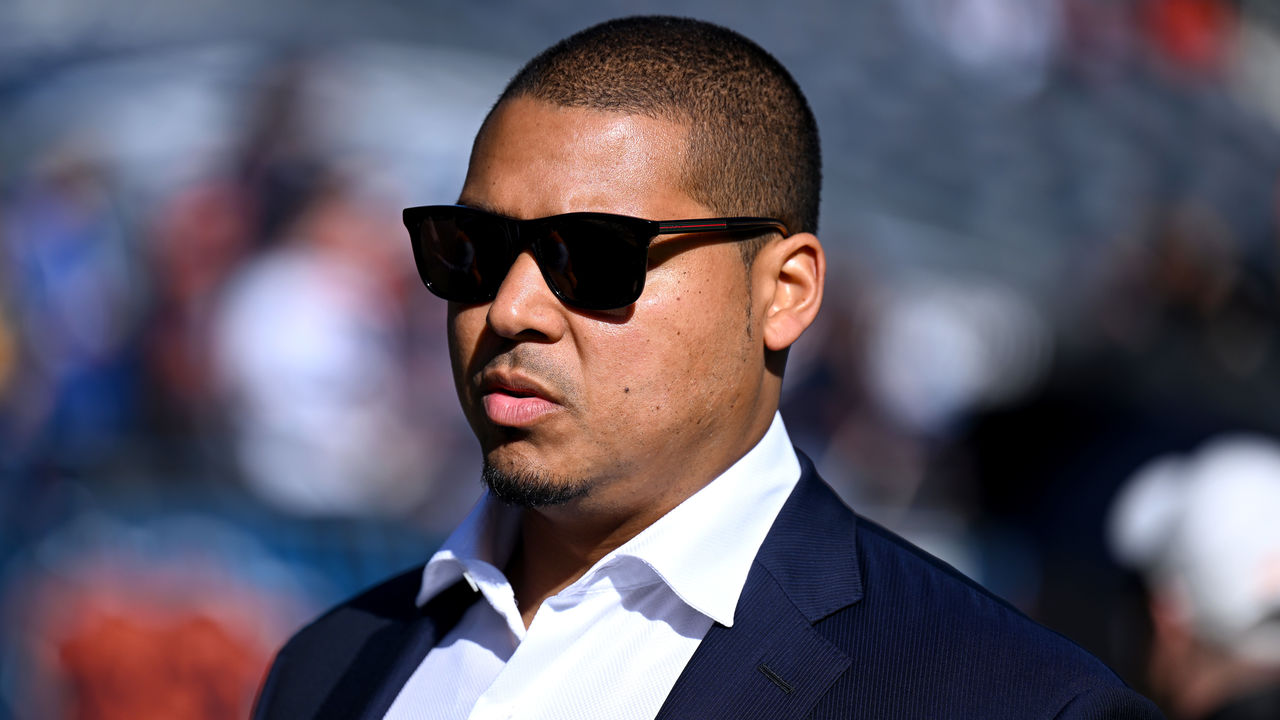
Chicago dwarfs the field in cap space. Poles has up to $75 million available, more than twice as much as almost every other team, according to Over The Cap.
He's already swung a blockbuster deal. Poles traded the No. 1 pick to the Panthers last Friday for four draft selections - most notably this year's No. 9 pick and a 2024 first-rounder - and three-time 1,000-yard wideout D.J. Moore.
The Bears need reinforcements at every position but quarterback. Justin Fields thrilled fans in his second NFL season by supplanting Lamar Jackson, at least temporarily, as the sport's top rushing QB.
Fields challenged the single-year yardage record that Jackson set in 2019. Fields topped out at 1,143 yards - 63 shy of the mark and the second-highest total ever - when a hip injury shelved him for the season finale.
Fields progressed but remained limited as a passer in 2022. No team threw the ball less frequently or for less yardage than Chicago. Fields' receiving corps was ineffectual, partly because Darnell Mooney missed a third of the season with an ankle injury and Chase Claypool averaged a scant two catches per game after he arrived at the trade deadline.
Defensively, Chicago didn't stop the run (31st in yardage), generate pressure (32nd in sacks with 20), or show up on time. The defense ranked last by some distance in expected points added per play in the first half of games, per Ben Baldwin's database, creating deficits that Fields couldn't surmount. The Bears allowed a 105.9 passer rating in first halves, meaning the average QB they faced resembled Patrick Mahomes, whose season rating was 105.2.
Some players were bright spots. Two up-and-comers on the offensive line, left tackle Braxton Jones and right guard Teven Jenkins, posted respectable PFF grades above 75.0. Safety Jaquan Brisker's four sacks ranked fifth among NFL rookies. But the roster's not remotely strong enough to snap a playoff win drought that dates to 2010.
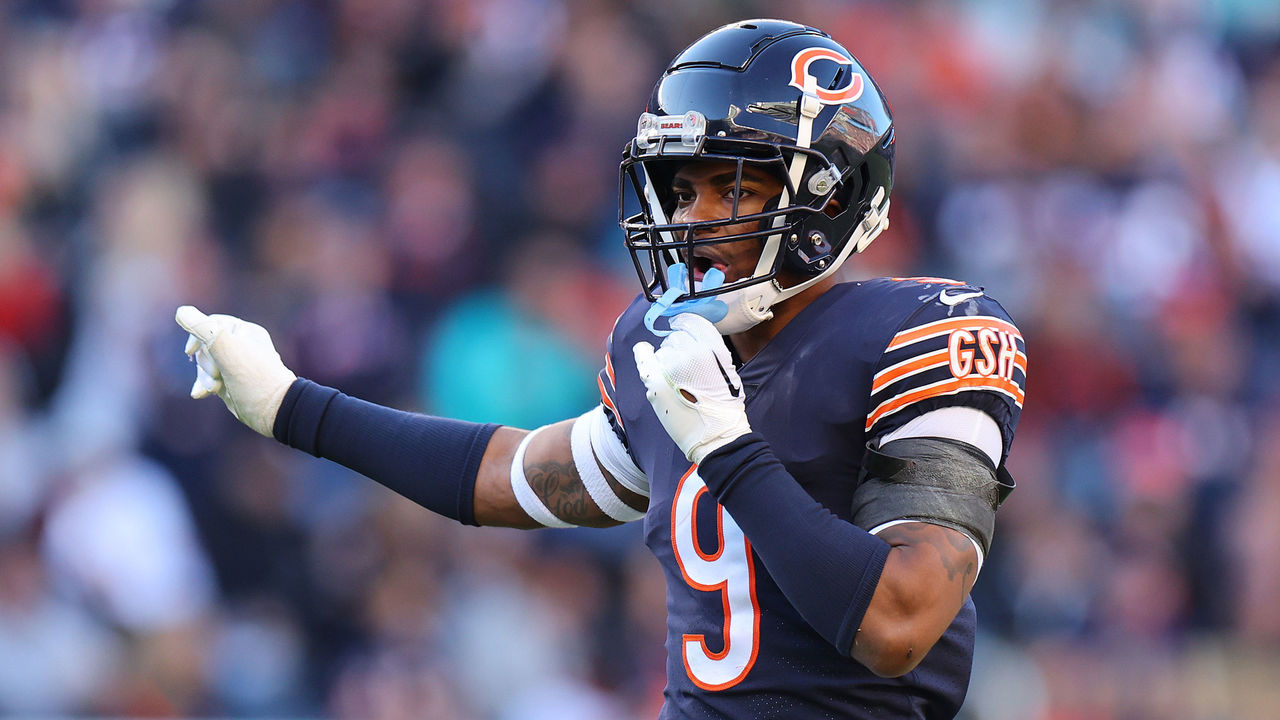
Poles' job is to change that. Hired in January 2022 to revamp the Bears in tandem with his handpicked head coach, Matt Eberflus, the GM shed salary by swapping Smith to the Ravens, linebacker Khalil Mack to the Chargers, and edge defender Robert Quinn to the Eagles for draft capital. Because the previous regime traded up to land Fields at No. 11 overall in 2021, Poles didn't pick in the first round in his first draft.
Poles could have opted to stand pat at No. 1 next month to draft a budding star defender like Will Anderson, the Alabama edge rusher.
Different pass-rushers - maybe Texas Tech's Tyree Wilson or Clemson's Myles Murphy - should be available to target at No. 9 instead. Good offensive linemen will be there for the taking, too. Chicago also acquired the No. 61 pick, Carolina's first-round selection next year, and the Panthers' second-rounder in 2025.
Poles' nuclear option is to deal both the No. 1 selection and Fields. In theory, the Bears could gain even more picks and aim to draft Anthony Richardson or Will Levis to reset at quarterback.
A QB prospect would need to wow Poles to spur him to move on from Fields, the GM reiterated recently at the NFL Scouting Combine. Whether that would be the right call is genuinely debatable.
Fields ranked 32nd in interception percentage (3.5%) and absorbed 55 sacks in 2022, tying for the league high with the Broncos' Russell Wilson on 125 fewer dropbacks. No NFL starter took longer to throw (3.45 seconds on average), though that's partly because Chicago's receivers struggled to separate. He's also more experienced than any incoming rookie and might flourish behind a sturdier O-line with more playmaking help.
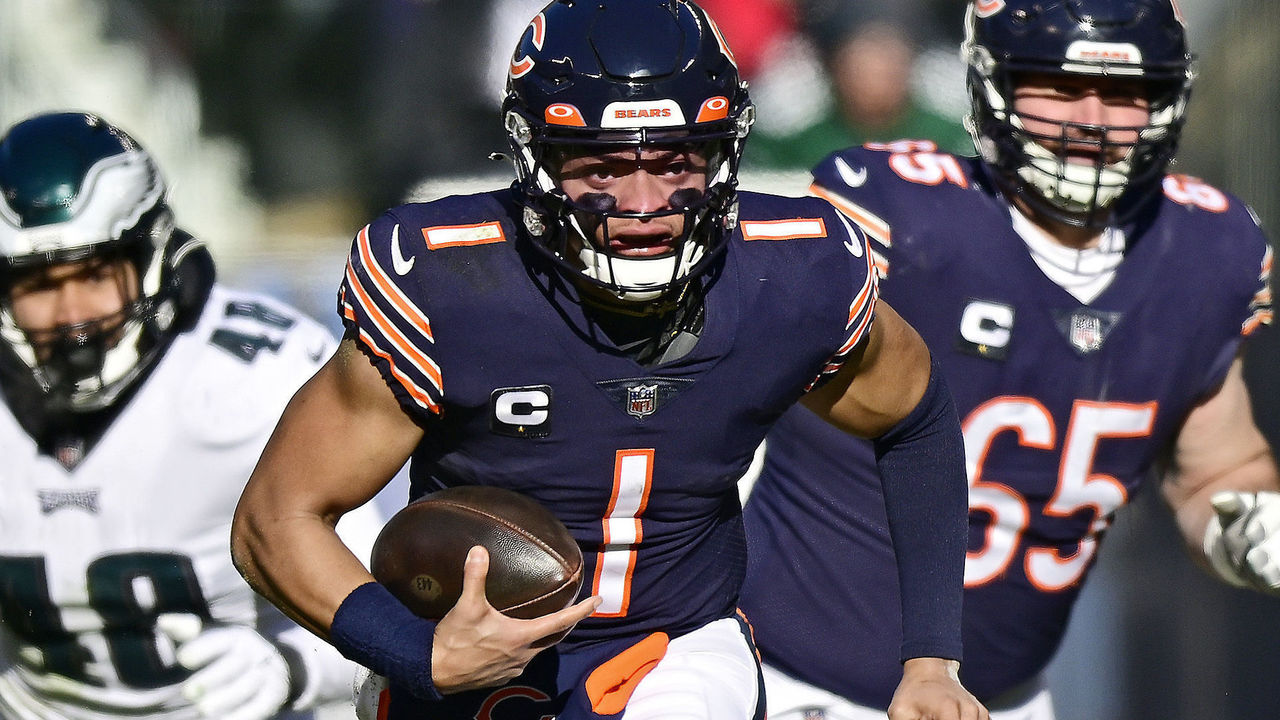
Various free agents could help fill Chicago's three main areas of need.
Wideout: Tight end Cole Kmet amassed 544 receiving yards, but Bears wide receivers collectively caught fewer passes (121) than the Vikings' Justin Jefferson (128). Moore will be a massive addition, but Poles doesn't have to stop there. Free agents Jakobi Meyers and JuJu Smith-Schuster tend to post great catch rates on a high volume of targets. DJ Chark and Allen Lazard can be explosive and should command less money.
Offensive line: Jones, the promising fifth-round rookie who didn't miss a snap in 2022, could slide to right tackle if Poles manages to sign Orlando Brown Jr., the jewel of the class. Chicago's best options on the right side include Mike McGlinchey (five-year starter in San Francisco), Jawaan Taylor (career-low five sacks allowed in 2022), and Kaleb McGary (86.6 PFF grade, fourth-best among tackles). Left guard Ben Powers was one of three guards who didn't concede a single sack in 1,000-plus snaps, per PFF.
Pass-rusher: A mere 18 teams in the Super Bowl era recorded fewer sacks per game than the '22 Bears did (1.18). The defense actually finished fifth in QB hurry rate despite ranking 25th in blitz frequency, per Pro Football Reference, yet consistently failed to get home. Suitors will abound for Javon Hargrave following the interior lineman's 11-sack year in Philadelphia, but if they want him, the Bears have the means to be the highest bidder.
Back in the day, before games were televised, the Bears dominated the NFL. In the process of clinching six league championships in the 1930s and '40s, they racked up many of the franchise's 786 all-time regular-season victories.
Historic rival Green Bay has won 790 games. The Packers passed Chicago on the all-time leaderboard in December when they intercepted Fields twice and prevailed 28-19 at Soldier Field.
Wound salted, Chicago's goal now is to clamber out of the NFC basement and eventually contend again. Other teams that scraped the bottom of the standings have done this.
The NFL's last two cellar dwellers improved rapidly. The Bengals and Jaguars both savored playoff victories within a couple of years of adding the draft's marquee quarterback.
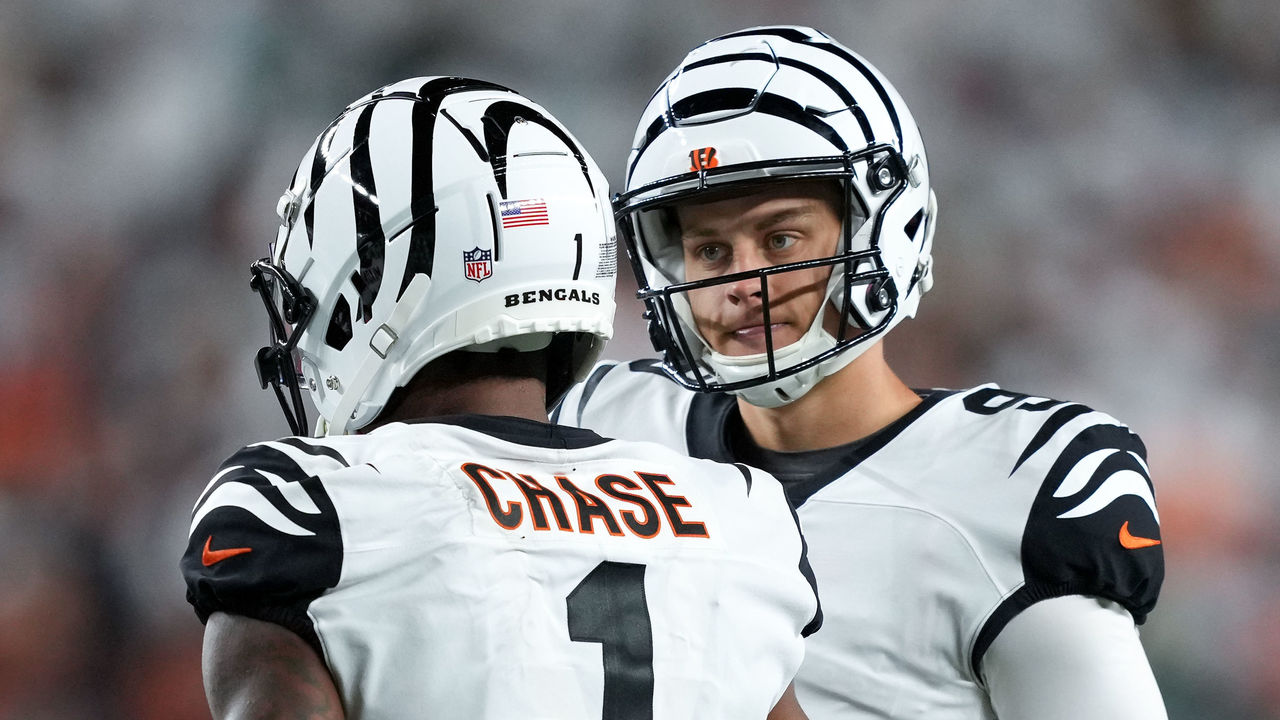
Cincinnati's 2020 draft haul was transformative. A 2-14 pushover at the time, the Bengals took Joe Burrow with the top pick and selected wideout Tee Higgins at No. 33. Burrow tore his ACL and MCL as a rookie, which then enabled them to draft Ja'Marr Chase fifth overall in 2021.
Stacked at receiver, the Bengals fortified their O-line and defense in free agency and promptly reached back-to-back AFC title games, advancing to one Super Bowl that they almost won.
Jacksonville went 4-29 between the 2020 and 2021 seasons, subjecting '21 No. 1 pick Trevor Lawrence to a rocky first year. Bold moves helped turn the tide. Doug Pederson replaced Urban Meyer as head coach and instilled order and competence. Jaguars GM Trent Baalke committed to pay Christian Kirk $72 million last March and also signed Zay Jones and Evan Engram, surrounding Lawrence with adept pass-catchers during his rookie contract.
People questioned the merits of breaking the bank for Kirk, but all three acquisitions put up career years. Running back Travis Etienne was the league's ninth-leading rusher in 2022. Two fellow recent high draft picks, edge defender Josh Allen and cornerback Tyson Campbell, were top 10 players at their position by PFF grades.
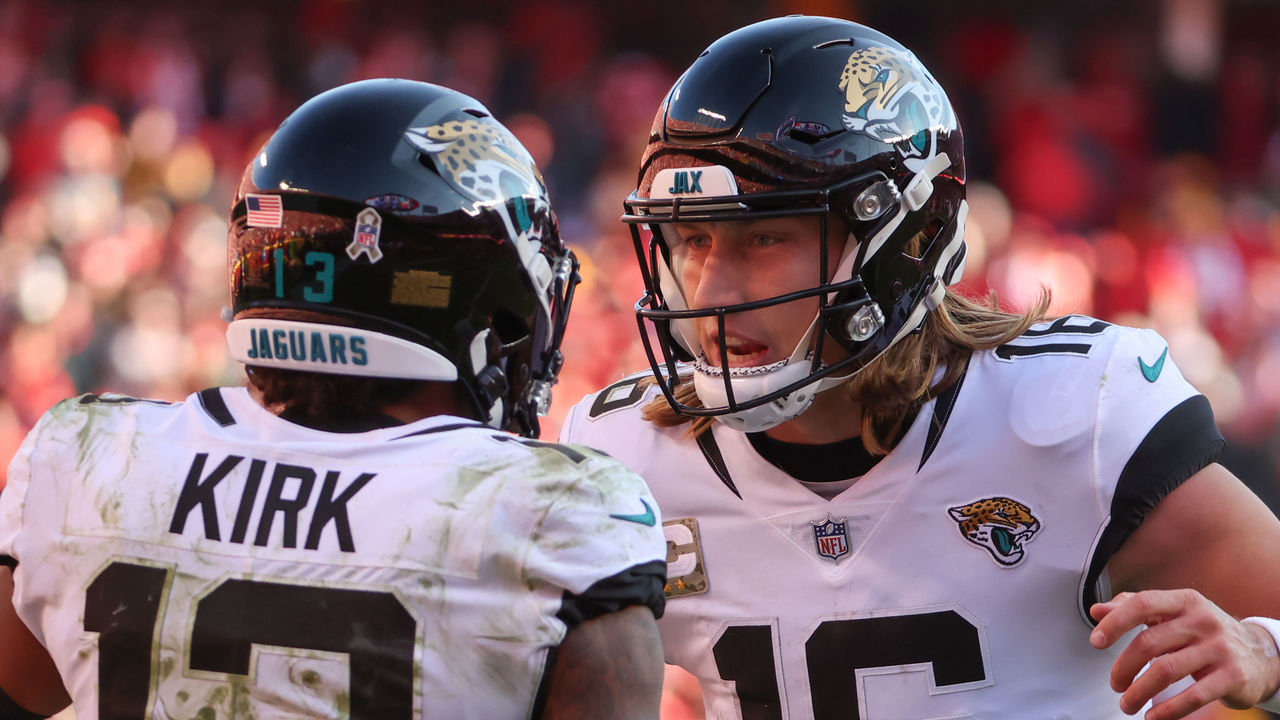
Glow-up delayed, Lawrence ranked sixth in QB EPA/play from Week 9 onward, according to Baldwin's data. The Jaguars went 7-2 in that span to counteract a 2-6 start, rising to seventh in the NFL in point differential. Winning the division title and storming back to stun the Chargers on Wild Card Weekend positioned Jacksonville as the big dog in the AFC South entering next season.
Chicago's division, the NFC North, is tougher but imperfect. Minnesota won 11 games by one score last season, finished with a negative point differential, and ran out of luck in the wild-card round. Detroit's offense was slightly more potent in 2022 than its defense was porous. Sooner or later, Green Bay won't employ Aaron Rodgers anymore.
These squads ran the table against the Bears last season, outscoring Chicago 185-104 across six matchups. Cairo Santos' missed extra point in Week 10 - Fields sprinted 67 yards to the end zone on the previous snap - cracked the door for the Lions to win by a point at Soldier Field.
In retrospect, that letdown helped the Bears clinch 32nd place. Poles swapped the No. 1 pick to begin making up ground. His next maneuvers could revive a sluggish franchise and define the offseason.
Nick Faris is a features writer at theScore.
HEADLINES
- Patriots legends call out Brady for not picking sides in Super Bowl LX
- Seahawks expect Emmanwori to play in Super Bowl despite low ankle sprain
- Legends row: The names that define the Super Bowl
- Super Bowl betting hub: Everything you need for Seahawks-Patriots
- Super Bowl picks: Who will hoist the Lombardi Trophy?